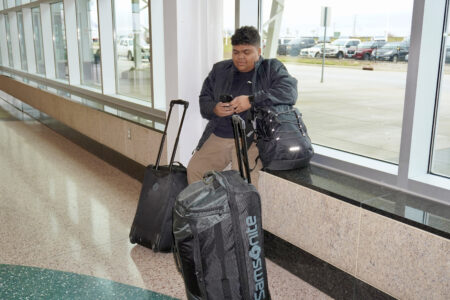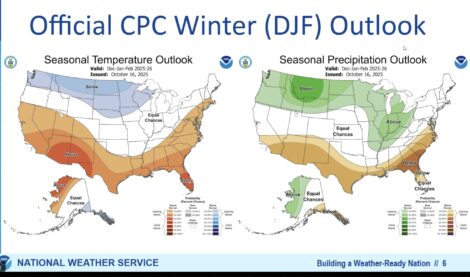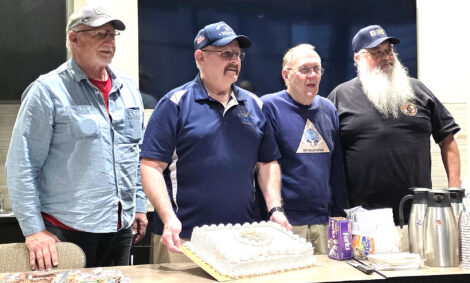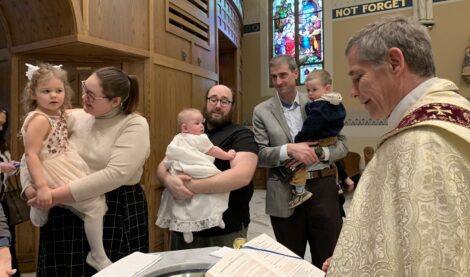Swine farm fails to get Pierce County planning board support
Project goes to commission for decision
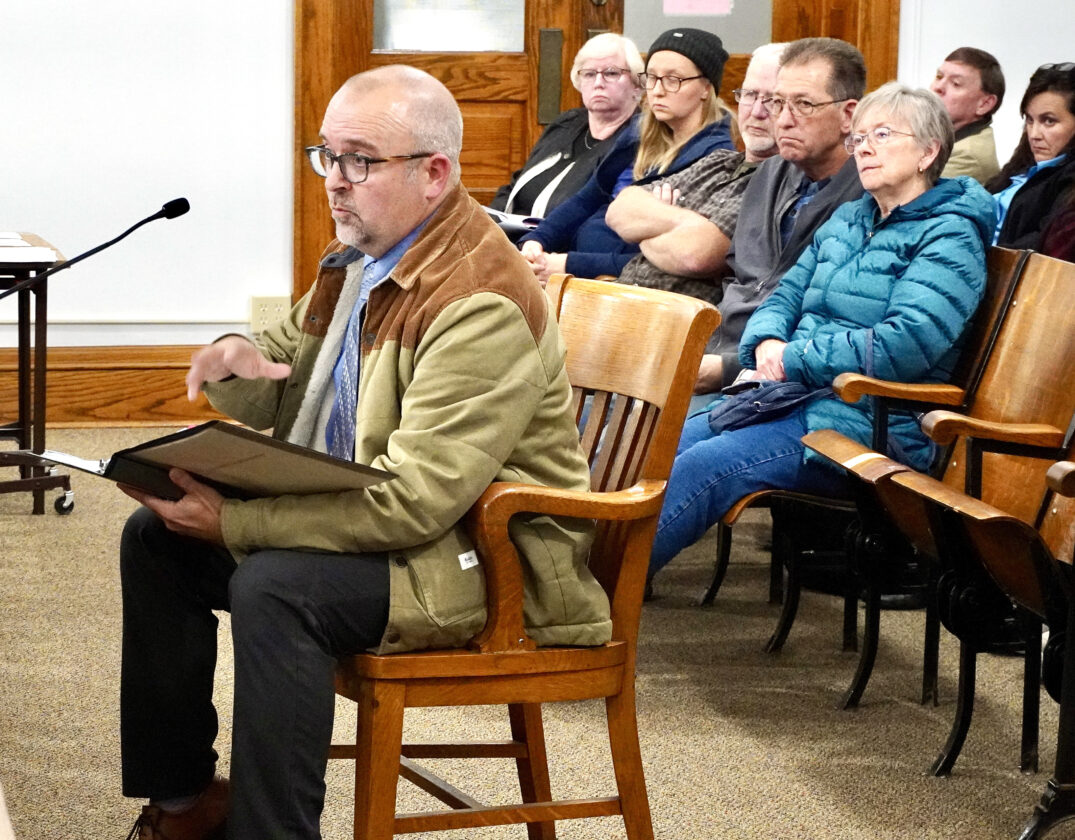
Jill Schramm/MDN Marty Haroldson, director of the Division of Water Quality in the North Dakota Department of Environmental Quality, addresses questions at the Wednesday, Nov. 5, meeting of the Pierce County Planning and Zoning Board as members of the public listen from the seats in the Pierce County courtroom in Rugby.
After more than two hours of testimony that largely went against a proposed commercial swine operation, the Pierce County Planning and Zoning Board voted 6-0 Wednesday, Nov. 5, to recommend the county commission deny the application of Dakota SAO.
The additional testimony came on top of two hours of previous testimony on the hog farm Oct. 16.
A key piece of information that helped sway the board was a map showing Hurricane Lake within a mile of the proposed hog operation.
Jeff Kenner, from the Devils Lake area, pointed out the Hurricane Lake Waterfowl Production area lies within the setback established in ordinance for animal feeding operations near recreational, residential or commercial uses. The Hurricane Lake area is zoned agricultural rather than recreational, but Kenner said the definition of “zone” can refer to an area distinguished by its purpose.
“Hurricane Lake WPA is truly a recreation area and is within one mile of the setback,” he said.
Lincoln Larson, who lives closest to the proposed project, also voiced concern that the project plans include no setback from Hurricane Lake and no protection against manure spread as fertilizer draining into the wildlife and recreation area. He described it as three semi-trailers fully loaded with 55 gallon drums of raw sewage being dumped into Hurricane Lake and continuing on to at least two more waterfowl production areas.
“At the very least, this is an egregious oversight. It is an asinine way to run a supposedly professional and principled operation,” he said.
Nathan Pesta, agricultural engineer with project consultant DeHann Grabs & Associates of Mandan, said Hurricane Lake was viewed under the definition of surface water, which requires only a 1,000-foot setback.
Dakota SAO is eyeing an 80-acre parcel just inside the Pierce County line, north of N.D. Highway 17 between Cando and Wolford, for a sow farm. The facility would have a capacity of 6,510 sows, nearly 2,000 replacement gilts and 792 nursery gilts, according to information presented at the Oct. 16 hearing.
Testimony at the Wednesday meeting reiterated concerns about odor, water contamination and draw on an aquifer that supplies regional drinking water.
Guy and Berinda Larson, whose family farm is near the project site, stressed the environmental concerns.
“This is our community. This is our land, our water, our health, our families and our homes – not some corporation’s raw sewage, toxic dumping ground,” Berinda Larson said.
“They have no right to infringe on the life, liberty and pursuit of happiness of anyone for their personal gain. Out-of-state investors should not be able to come in and put a hog facility a mile and a half upwind of a family farm that’s been there for five generations,” Guy Larson added. “It’s time to stand up and fight for what we have.”
Pesta said the project complies with all standards and safety requirements.
“The project will bring about 1,000 acres worth of fertilizer for soil health and nutrient benefits every year. The local soils are nutrient-deficient in phosphorus and would greatly benefit from the organic fertilizer produced on site,” he said, noting that manure application would reduce commercial fertilizer costs and be designed to prevent runoff.
Jay Reinke, Rugby, offered information he gleaned from talking to Cando residents. Dakota SAO has a hog operation east of Cando with more than 6,000 animals.
“There’s some caution, but it’s not overwhelming. And again, I can appreciate being a farmer next door. The impact would be far greater. But the impact in Cando has been a little more moderate than what I expected,” Reinke said.
However, the economic benefit to the community from the operation also hasn’t been really obvious, he said.
Kent Krause, president of Pinnacle, which provides environmental services to Dakota SAO, responded to the public’s information about adverse health effects in communities near large animal feeding operations.
“We have our struggles in community health, like everybody else, but we don’t have any known issues showing in our local communities,” he said.
“We don’t have any raging health issues or you’d be reading about it, and you wouldn’t see that industry continue to grow and thrive.”
Krause said hog operations have shown positive economic impact, including providing a market for local grain and creating jobs. Dakota SAO expects to create 18 jobs with its proposed project.
Bruce Lewallen, representing Zion Township in Towner County, just east of the proposed project, said the odor from the existing Dakota SAO operation can be detected within Cando, several miles away.
“As far as the workers, you’ve probably got three to four families, and the rest come and go as transient workers,” he said. However, he said the real issue the board needs to weigh is the impact on water supply, which also was a primary concern of a number of residents who spoke.
The Pierce County Commission is expected to consider the board’s recommendation at its next meeting.

